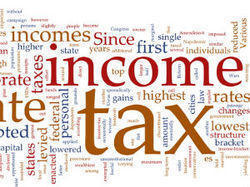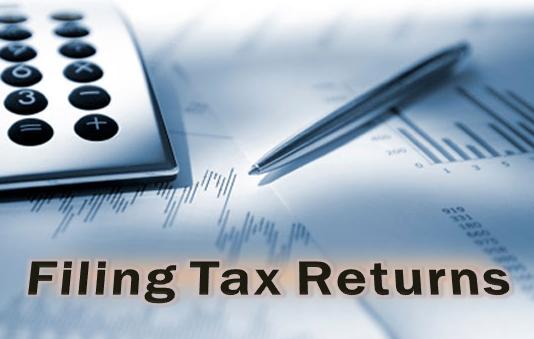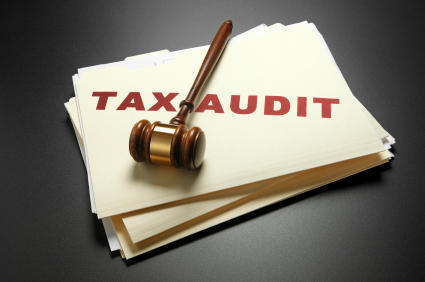Direct Tax Services
Leading of Income Tax Consultancy Services, Income Tax Return Filing Services, Online TDS Payment Services, Pan Card Registration Services, Statutory Audit Services, TAN Registration Services, Tax Audit Services and TDS Return Filing Services from Baghpat.
Preferred Buyer From
| Location | Anywhere in India |
We also offer income tax services that comprise taxation on income earned in a financial year a part of which is taxable as per rates prescribed for that year. With the financial year running from 1 April to 31 March of following year, broadly taxpayers are classified as residents or non-residents where the individual taxpayers can be classified as ‘residents but not ordinary residents’. Our team of tax consultants and financial advisors also allows us to offer Income tax consultancy services that are aimed at offering business solutions to Manufacturers, Traders, Dealers as well as Service providers of industry.
Residential Status
An individual is considered resident in India if he is in India in tax year for: 182 days or more; 60 days or more where the period of 60 days stands changed to 182 days or more for –
- Indian citizens/persons of Indian origins on visit to India
- For citizens of India leaving India for employment abroad as members of crew of Indian ship during tax year
- A resident is “not ordinarily resident” in India in any tax year if he:
- Has been “non-resident” in India in nine out of 10 previous years preceding that year
- Has during previous seven years, preceding that year been in India for total period of 729 days/less
Heads of Income
Income is categorized under five broad heads/classes where the taxable component of income is ascertained as per the rules for particular head/class of income followed by aggregation for determining total taxable income. These include:
- Salaries – Received against services rendered and include wages, pension, fees, commission and taxable value of perquisites.
- Income from house properties that comprise income that arises from use of residential/commercial properties. Here, only two prescribed deductions are permitted while computing income.
- Profits and Gains from Business/Profession that covers income earned from business/profession that is net of permissible deductions, against revenue earned.
- Capital Gains that covers gains which arise from transfer of capital assets and the period of holding determining classification of asset, which then determines manner of taxation. The gains comprise short-term assets and long-term capital assets.
- Sale of Certain Specified Investments that are subjected to taxation under which tax is levied on value of transaction.
- Income from Other Sources that are residuary head/class of income covering any income not specifically dealt with under other heads.
Rules Governing Foreign Nationals
For foreign nationals, Indian tax law provides exemption of income earned subject to prescribed conditions. This is based on conditions like –
- Individual’s stay in India does not exceed 90 days
- Payment made is not deducted in computing income of employer
- Remuneration received by person employed on foreign ship provided his stay in India not exceeding 90 days
- Remuneration of foreign diplomats, consular staff, trade officials and their staff and family
- Income of employee/consultant of government approved foreign charitable institutions
Companies
Domestic Company
- Income-tax @ 25% of total income for companies having turnover does not exceed 400 crore, in other case 30%
- Surcharge at the rate of 7% of income tax provided that total income exceeds Rs. 1 crore and 12% in case income exceeds Rs. 10 crore
- Education Cess @ 4% of total of Income-tax and surcharge
Firms
- Income-tax @ 30% of total income
- Surcharge at the rate of 12% of income tax provided that total income exceeds Rs. 1 crore
- Education Cess of 4% of total of Income-tax and surcharge
Kinds of Taxes
- Annual Tax which is levied on income earned in a financial year and is based as per the rates declared in annual budget. With rates varying with each budget, the tax is payable in advance by way of quarterly installments during financial year.
- Minimum Alternate Tax (MAT) is tax levied @ 19.055% of book profit. Here, the surcharge is at the rate of 7% of such income tax provided that total income exceeds Rs. 1 crore. Further, the Education Cess is @ 4% of total Income-tax and Surcharge.
Preferred Buyer From
| Location | Anywhere in India |
The Ministry of Finance notified new Return Forms for the AY 2020-21, whereby firms who are liable for tax audit under s.44AB of the Income Tax Act 1961 and Corporate taxpayers mandatory to file their return electronically under digital signature. All other categories of taxpayers (other than charitable trusts, institutions, etc.) could file the return in a paper form or electronically, or in a bar-coded return form. Individual and HUF taxpayers were required to furnish only that information with regard to transactions, which were reported through Annual Information Returns (AIR). CBDT Introduces New Series of Forms for Filing of Income Tax Return for the Assessment Year 2020-21 The Forms for Return of Income are assessment year specific. For the assessment year 2020-21, the Central Board of Direct Taxes have introduced the following eight Return Forms under a new series.
Last year, electronic filing was made compulsory for corporate tax-payers. E-filing of corporate returns has been a resounding success. Therefore, it is important to carry forward this successful initiative. In the Budget Speech – 2007, the Finance Minister had announced that electronic filing of returns would be made mandatory for more categories of taxpayers. Accordingly, for assessment year 2009-10, it would be mandatory for firms liable to tax audit under section 44AB to file their returns electronically. Corporate taxpayers and such firms may either file their return electronically under digital signature or may transmit the data of the return electronically and thereafter submit a one page verification Form which contains a summary of the return transmitted electronically.
All other categories of taxpayers (other than charitable trusts, institutions, etc.) will have the option to file the return in a paper form or electronically, as mentioned above, or in a bar-coded return form. Last year, the Government had introduced a cash flow statement for Individuals and HUFs. However, in response to representations against the cash flow statement, the same has been withdrawn. Individual and HUF taxpayers would now be required to furnish only information with regard to transactions which are reported through Annual Information Returns (AIR).
Preferred Buyer From
| Location | Anywhere in India |
We offer clients competent service support for filing of Online TDS Payment Services. It is submitting TDS through electronics means and has emerged as convenient modes of collection of tax affected at the source from assessed in India. Here, in events where specified income is generated as per the Income-tax Act, the payer of such income needs to deduct stipulated percentage of such income through Income-tax and pay balance amount to the recipient. This dedicated tax is deducted at source by payer and is deposited in Government treasury through the means of eTDS. eTDS is deducted from income of recipient as payment of Income-tax by recipient at time of assessment.
There are several listed income sources that are subjected to tax deduction at source and is presently also used as instrument to enlarge tax base like –
- Salary
- Interest/Dividend
- Interest on securities
- Winnings from lottery
- Commission & brokerage
- Rent
- Fees for professional & technical services
As a form of Advance tax paid to government, E-TDS returns are prepared in form No. 24, 26 or 27 as per Govt. of India Income Tax Act. Under this act, all Government & Corporate deductors/collectors need to file TDS (Income Tax Deducted at Source) returns on electronic media. Here, our expertise lies in providing services in preparation of e-TDS through –
- Quarterly returns
- Annual filings
Preferred Buyer From
| Location | Anywhere in India |
We offer clients services for getting Pan (Permanent Account Number). It is required as per the latest requirement of Income Tax Act. PAN is a number that is used by Income Tax Department for identifying a person as well as through this number get complete information about the assessed person. As a 10 digit alphanumeric number, it comes printed on laminated card and features information like PAN number, name of applicant, father’s name, date of birth and also carries passport size photo for identification purposes.
PAN number has replaced General Index Registrar (GIR) Number which is provided by assessing officer to assessed and contains details of assessing officer. Based on the section 139A of Income Tax Act, 1961, PAN is required for the following:
- For filing income tax returns
- For undertaking any correspondence with income tax department
- For submitting challans for payment of tax levied to the department
- For conducting verification of identity of assessed in income tax department
Preferred Buyer From
| Location | Anywhere in India |
By the meaning of word the statutory audit in India is the audit which is prescribed by statute. There is many audit in India which is prescribed by the different statute like Income Tax Act require audit as per him similarly VAT Act require audit as per him so a CA need to conduct many audit as per different statute requirement. But known and popular terms used as a statutory audit is not an audit as required under Income Tax Act or VAT Act. It is similar different thing and it is required under the law of incorporating act like if company then audit required under Companies Act and if other body then body incorporated under that act. In India mainly statutory audit means audit under Companies Act in which auditor reports to the member of the company i.e. shareholders.
How we do? Statutory Audit Execution General Process
Our firm is well equipped and well experienced in Statutory Audit and we perform it as per the Audit Program designed for the company after assessment of their Internal Control.
- Steps generally we follow
- Getting Appointment Letter & Board Resolution Copy
- Getting NOC from Previous Auditor
- Filing our no disqualification status to the company
- Filing of Form 23B to ROC
- Getting Letter of Engagement
- Assessment of Internal Control
- Formulation of Internal Audit Program Action Plan and Calendar
- Conduction Audit as per IGAAP Companies Act ICAI Accounting Standards and Auditing Standards
- Forming an opinion on financial statement prepared by the company
- Reporting to Shareholders
- Attending AGM
Preferred Buyer From
| Location | Anywhere in India |
TAN number is used for deduction of taxes and is required if you are – Paying salary Making payments in form of consultancy fees, rent, contractual payments With the tax deducted at source and paid to Income Tax Department, it is mandatory to deducting taxes and is quoted in TDS/TCS return including in –
- e-TDS/TCS return
- TDS/TCS payment challan
- TDS/TCS certificates
TAN is 10 digit alpha numeric number that is needed by all persons responsible for deducting/collecting tax and as per Income Tax Act, 1961 is required by persons making payment/crediting income of specified type to another person. Here the payee deducts a specified amount payable/creditable at time of making payment/giving credit (whichever is earlier) and deposit sum deducted (TDS). Prior to making deductions, persons need to apply to assessing Officer for allotment of tax deduction account number (TAN) under section 203A of the Income Tax Act.
TAN in quoted in following documents:
- Challans while depositing deducted tax
- Certificates issued against tax deducted
- Returns furnished in respect of tax deducted at source
- Other documents that pertain to transactions as may be prescribed
Preferred Buyer From
| Location | Anywhere in India |
Tax Audit comes under the purview of Section 44AB of the Act which specifies the persons who are required to get audit of their books of accounts. This section specifies particularly that except for the persons coming under the purview of the sections mentioned in the text of Section 44AB , all other have to get their accounts audited under Section 44AB.
The object of audit under section 44AB is only to assist the Assessing Officer in computing the total income of an assessee in accordance with different provisions of the Act.
This Audit effectively curbs tax Evasion and ensure tax compliance. Therefore,
- Even though the income of a person is below the taxable limit, he will have to get his accounts audited and if his turnover in business exceeds the prescribed limit.
- If Assessing Officer wants the assessee to get his accounts audited in cases where the figures of turnover as appearing in the books of account of the assessee do not exceed the prescribed limits, he has no option but to pass an order under section 142(2A) directing the assessee to get his accounts audited from a chartered accountant as may be nominated by the Commissioner of Income-tax or the Chief Commissioner of Income-tax
- Hence, it must also be understood that the issue whether the turnover/gross receipt exceeds the prescribed limit is to be determined in each year independent of the results obtained in the preceding year or years. This section applies only if turnover/gross receipt exceeds the prescribed limit according to the accounts maintained by the assessee. It would be advisable to maintain basic records to support the turnover/gross receipt for declare audit required or not.
Analysis of Section 44AB: Applicability: This section is applicable to every person:
- Carrying on business shall, if his total sales, turnover or gross receipts, as the case may be, in business exceed or exceeds one crore rupees in any previous year; or
- Carrying on profession shall, if his gross receipts in profession exceed fifty lakh rupees in any previous year; or
- Carrying on business as specified under Section(s) 44AE, 44BB, 44BBB and declared profit less then as specified in the respective sections
- Carrying on business/profession as specified under Section 44AD, 44ADA and income exceeds the limits as specified in the respective sections
- Deriving income under Sections 44B, 44BBA and declared profit less than the limits specified
Penalty for failure to get accounts audited:
If any person who is required to get his accounts audited by an Accountant as compliance provision of 44AB, before the specified date fails to do so shall be liable for penalty under section 271B. The amount of penalty shall be one-half percent of turnover / gross receipts or Rs.150000/- whichever is lower. This penalty shows the seriousness that the Government affixes towards Tax Audit under section 44AB.
Preferred Buyer From
| Location | Anywhere in India |
TDS Filing: Eligibility, Filing Process, Due Dates, Revised TDS Return, TDS refund
Any person or business who deducts TDS needs to file TDS return, It is filed with Government every quarter, the purpose of it is to inform on the TDS deducted on the payments made by deducter and also and the TDS deposited by deducter in particular quarter. TDS return is filed online. TDS refund is possible only id compliance of filing is completed by party deducting TDS. The smart way is to consult your Chartered Accountant to ensure you are complying with TDS law and getting your TDS refund in a correct manner.
TDS Provision compliance
TDS you pay every month, you receive a challan, this Tds paid Challan is useful at the time of return filing, where you give details on tds deducted and paid by you. TDS filing every quarter is mandatory, The Return form of TDS is prescribed by the Government. The filing has to be done as per TDS due dates specified. Non-filing of return as per TDS provisions attracts penalty. Noncompliance to file TDS provisions gets reported to authorities through financial reporting. The objective is to keep a check on TDS payment status and compliance with the provision of TDS also TDS refund is possible only when filing compliances are complete. TDS refund can be claimed through filing ITR only if your tax computation shows that excess tax has been deducted in your case. Consult a Chartered Accountant to get help on TDS matters
How to know if TDS deducted has been deposited after deduction ?
If your tds has been deducted, you can check the same online through form 26AS in income tax India Government website
Types of TDS Return Forms
- TDS Return Form 24Q : Form 24Q is filed in case TDS is being deducted from salary. An employer files it. TDS return form 24q contains the detail information of salary paid and credited to the account of the employee along with the TDS deducted and payment details of the same.
- TDS Return Form 26QB : On payment being made for the transfer of immovable property, if tds is being deducted Form 26 Q is filed in that case.
- TDS Return Form 27Q : If a payment to non-resident required TDS deduction. In this case, TDS filing is done through form 26QB.
- TDS Return Form 26Q : TDS return form 26Q is filed for any other case like interest payment, commission payment, professional fees payment, contractual payment etc.
Documents Required for filing e-TDS Return
- PAN card
- TDS certificates (if TDS has been deducted by other)
- Payment details like TDS challan date, number, bsr code and tds challan amount
- In response to a notice received from the Department of Income Tax – You need the details of Original return/details of notice.








